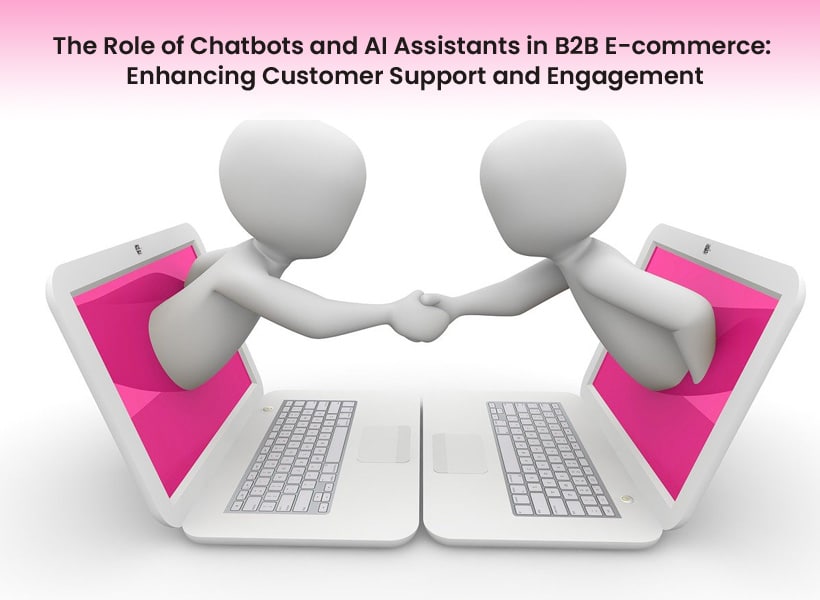The Role of Chatbots and AI in E-Commerce Customer Support

In today’s fast-paced digital world, customer expectations are higher than ever. Shoppers demand instant responses, personalized interactions, and 24/7 support. Traditional customer service methods, such as phone and email support, can be slow, expensive, and difficult to scale. This is where chatbots and AI-driven customer support come into play.
AI-powered chatbots are revolutionizing e-commerce customer service, enabling businesses to improve efficiency, enhance customer satisfaction, and reduce operational costs. Whether it's handling FAQs, processing orders, or providing personalized product recommendations, AI-powered chatbots are transforming the way businesses interact with customers.
But how exactly do chatbots and AI improve e-commerce customer support? Let’s dive deeper into their role and the benefits they bring to online businesses.
1. Providing 24/7 Customer Support
Unlike human agents who work in shifts, chatbots never sleep. They provide round-the-clock customer service, ensuring that users receive instant responses anytime, anywhere.
For e-commerce businesses, this means:
- No more missed sales opportunities due to delayed responses
- Increased customer satisfaction with instant answers
- Global accessibility, catering to customers across different time zones
A study by Salesforce revealed that 69% of consumers prefer chatbots for quick communication with brands. This highlights the growing importance of AI-driven support in today’s e-commerce landscape.
2. Reducing Response Time & Handling High Query Volumes
One of the biggest frustrations customers face is long wait times. AI chatbots eliminate this issue by providing instant replies, reducing response time significantly.
Moreover, chatbots can handle multiple customer queries at the same time, unlike human agents who can only assist one person at a time. This makes them particularly useful during:
- Holiday shopping seasons when customer inquiries spike
- Flash sales and promotions, where quick support can mean higher conversions
- Product launches, where customers seek additional details before making a purchase
By efficiently handling high query volumes, chatbots free up human agents to focus on more complex issues that require human intervention.
3. Enhancing Personalization with AI
Modern AI chatbots go beyond simple scripted responses—they can analyze customer behavior and preferences to deliver personalized recommendations.
For example, an AI-powered chatbot can:
- Recommend products based on a customer’s browsing history
- Offer discounts or promotions tailored to specific user preferences
- Remind users about items left in their shopping cart, reducing cart abandonment rates
By leveraging machine learning and customer data, AI chatbots can create a more engaging and personalized shopping experience, increasing customer satisfaction and boosting sales.
4. Automating Order Processing & Tracking
Chatbots are not just for answering questions—they can also assist with order placement, processing, and tracking.
For instance, a chatbot can:
- Guide customers through the checkout process
- Provide real-time order tracking updates
- Handle returns and refund requests
This level of automation reduces the workload on human agents while ensuring customers receive timely updates on their purchases.
5. Improving Multilingual Customer Support
For e-commerce stores catering to an international audience, language barriers can be a major challenge. AI-powered chatbots can solve this issue by offering multilingual support, allowing customers to interact in their preferred language.
For example, an AI chatbot integrated with natural language processing (NLP) can:
- Detect the customer’s language automatically
- Provide accurate translations in real-time
- Offer seamless support across multiple regions
This ensures that businesses can expand globally without needing to hire multilingual support agents, significantly reducing costs.
6. Reducing Customer Support Costs
Hiring and training a large customer support team can be expensive. AI chatbots help reduce costs by handling a majority of routine queries, allowing businesses to scale customer support without increasing expenses.
According to Juniper Research, chatbots are expected to save businesses $8 billion annually by 2025. The cost-effectiveness of AI chatbots makes them a valuable investment for e-commerce businesses of all sizes.
7. Enhancing the Post-Purchase Experience
A great customer experience doesn’t end after a purchase—it continues in the post-purchase phase. Chatbots play a vital role in:
- Sending order confirmations and shipping updates
- Providing guides on product usage
- Offering proactive support for returns and refunds
By ensuring smooth post-purchase interactions, AI chatbots increase customer loyalty and encourage repeat purchases.
8. Gaining Valuable Customer Insights
AI chatbots collect and analyze customer interactions, providing businesses with valuable insights. These insights help e-commerce brands:
- Identify common customer pain points
- Optimize their website and product offerings based on customer feedback
- Improve overall customer experience strategies
With real-time data, businesses can make data-driven decisions to enhance their e-commerce operations and boost customer satisfaction.
9. Integrating Chatbots with Omnichannel Support
Modern e-commerce businesses operate across multiple platforms, including:
- Websites
- Mobile apps
- Social media (Facebook, Instagram, WhatsApp)
AI chatbots can be integrated across all these channels, providing consistent and seamless support regardless of where the customer interacts with the brand.
For example, a customer might ask about a product on Facebook Messenger and later continue the conversation on the website chatbot—without losing any previous context.
10. Balancing AI with Human Support
While chatbots are incredibly efficient, they cannot replace human agents entirely. The best e-commerce customer support strategies combine AI automation with human expertise.
For complex issues like product defects, customized support requests, or complaints, chatbots should have the ability to:
- Escalate cases to human agents when necessary
- Provide a smooth transition between chatbot and live chat
- Recognize emotional cues (e.g., customer frustration) and adapt responses accordingly
This ensures that customers receive the best of both worlds—instant AI assistance and human empathy when needed.
Final Thoughts: AI Chatbots Are the Future of E-Commerce Support
Chatbots and AI-driven customer support are no longer optional—they are essential for modern e-commerce success. By offering 24/7 instant responses, personalized interactions, order automation, multilingual support, and cost savings, AI-powered chatbots help businesses enhance customer satisfaction, boost efficiency, and drive more sales.
As AI technology continues to advance, chatbots will become even more intelligent, providing an even more human-like and seamless shopping experience. Now is the time for e-commerce brands to embrace AI-driven customer support and stay ahead of the competition.





